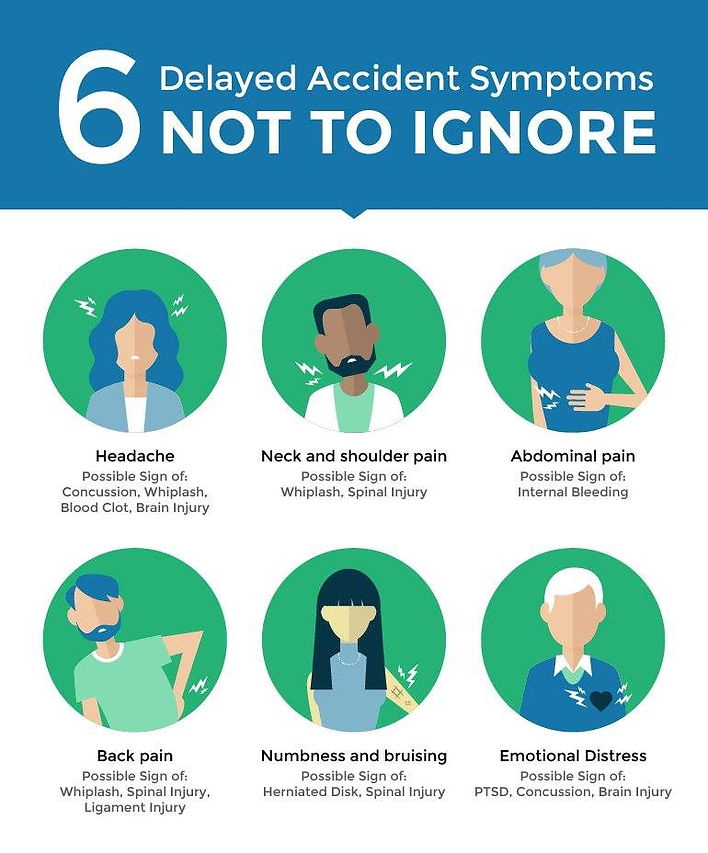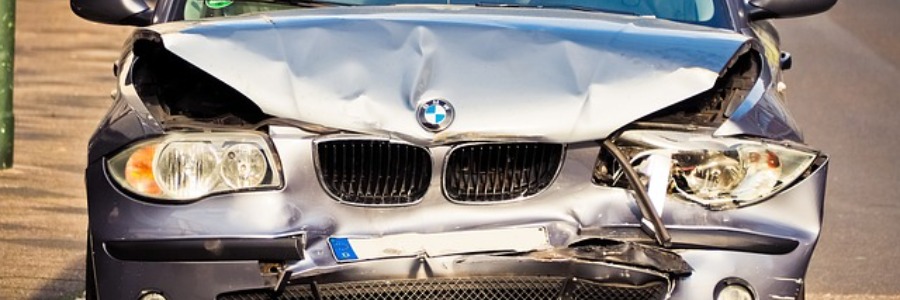Non-Injury Car Accidents – Litigating Auto Collisions.
Contents
- Non-Injury Car Accidents – Litigating Auto Collisions.
- Understanding Non-Injury Car Accidents
- Legal Options for Property Damage
- Delayed Injury Symptoms
- Long-term Consequences
- No-Fault Car Accidents
- When to Consider Legal Action
- The Role of a Car Accident Attorney
- FAQs About Car Accident Laws
- How do I sue someone for a car accident in Texas?
- Is Texas a no-fault state?
- What to do if I get sued for a car accident in California?
- Is TN an at-fault state?
- Who determines fault in an accident in TN?
- What is a non-fault accident?
- What state has a no-fault insurance law?
- What happens if someone sues you after a car accident in Texas?
- How much can you get for a car accident settlement in California?
- Final Word
If you’ve been in a car accident and haven’t suffered any physical injuries, you may still be able to file a lawsuit against the other driver. Depending on the circumstances surrounding the accident, and the extent of the damage to your vehicle, you may be able to take legal action for recovery of property damages. Additionally, you may still have been injured even though the symptoms may not be immediately evident.
Understanding Non-Injury Car Accidents
Car accidents occur on a regular basis, and their consequences can range from minor to severe. If an insurance provider attempts to offer you compensation that is lower than what you expect, given the damage caused, then taking your case to court might be the best option. It is important to remain informed of your rights in such situations so that you are not taken advantage of or under-compensated for damages incurred. Having a clear understanding of the laws regarding car crashes will ensure that you receive the most appropriate settlement for your situation.

Legal Options for Property Damage
Even if your insurance company refuses to repair or replace the damaged vehicle, you can pursue legal action in court. You may be able to receive compensation for repair or replacement costs, as well as other out-of-pocket expenses related to the accident. It’s important to speak with an experienced attorney to understand all of your options and determine whether filing a lawsuit is the best course of action for your particular situation.
In Texas, there is no typical cap on recovering property damage through civil lawsuits, barring certain circumstances involving governmental entities. If seeking recourse from a government employee or agency, a claimant may only recover up to $100,000 in damages. When relying exclusively on auto insurance coverage, drivers in Texas must carry at least $25,000 in property damage liability; however, any amount over this threshold requires additional legal action instead of an insurance payment.
Delayed Injury Symptoms
After being in a wreck, it’s important to get checked out by a medical professional. While it may take some time for any potential injuries to become apparent, getting an evaluation right away can help ensure that any and all symptoms are identified and addressed quickly. Furthermore, if you don’t have the financial means to pursue medical treatment, an attorney may be able to help you with no out-of-pocket cost.

When dealing with insurance companies regarding car accident claims, they often try to argue that because you didn’t seek medical attention immediately, you must not have been injured. This line of thought is flawed, as sometimes people don’t realize they were hurt until days later or may simply not have had the resources to seek treatment right away.
To protect yourself against this line of reasoning, make sure you seek professional medical attention as soon as possible after a crash. In doing so, you will be well informed about any possible injuries you could have sustained and can ensure that they are addressed promptly.
Long-term Consequences
Many people don’t realize that a car accident can result in serious, long-term consequences for their health. While the most obvious injuries may be visible right away, many hidden or delayed symptoms can take time to develop and present themselves. Traumatic brain injury (TBI), soft tissue injuries, herniated disks, and even psychological injuries can all arise after a crash.
Be aware of these potential post-accident health problems in order to detect them early and seek appropriate treatment. TBIs, for example, are often underrated since they are not easily identifiable, and the onset of concussion symptoms may be delayed. Soft tissue injuries such as sprains and strains may cause inflammation, bruises, and other signs that something is wrong days or weeks after an accident. A herniated disk may start with no symptoms at all, only to worsen substantially later on. Even psychological conditions such as PTSD can develop after a crash and result in nightmares, flashbacks, phobias, anxiety, depression, and more.
No matter what type of injury you may have sustained, it’s important to take any post-accident pain seriously and see a doctor as soon as possible. Insurance companies may attempt to deny claims that aren’t immediately identified after a collision; however, you should never accept this explanation without speaking to an experienced car accident lawyer first. With their help, you can make sure that any medical bills due to your injury are covered and you get the compensation you deserve.
No-Fault Car Accidents
When it comes to car accidents, who is at fault is a crucial factor. Texas, for example, operates under a “fault” insurance system, meaning drivers must carry a minimum coverage of $25,000 for bodily injury and another $25,000 for vehicle damage. This means that if another driver is responsible for an accident, they are accountable for any associated costs. Should they not have the necessary coverage, they would have to pay out-of-pocket for any expenses, such as medical bills or repairs. Essentially, this means that someone is almost always held accountable in the event of a car accident in Texas, be it the at-fault driver or their insurance provider. By carrying the required amount of coverage, you can be assured of receiving compensation should you find yourself in a collision.
When to Consider Legal Action
Several states in the U.S. have laws in place that allow for no-fault car accidents. This means that instead of determining who was at fault for an accident, each person’s insurance provider pays for their own losses and any damages. As a result, it is much more difficult to successfully sue another driver after a no-fault accident.
Limitations of No-Fault States
In some states with no-fault laws, certain procedures limit other parties from suing for large amounts of money after an accident. Instead, individuals are awarded a specific amount commensurate with the damages that they incurred. The no-fault laws also generally remove the option of litigation and instead provide compensation through settling with the insurance provider.
Requirements for Litigation
In order to pursue legal action against another party involved in a car accident, extreme circumstances must occur. These include cases such as serious injury or negligence on the part of the other driver(s). Without these criteria being met, litigating a no-fault accident is exceptionally difficult.
Potential Consequences
In some states without no-fault insurance laws, victims of car accidents can receive compensation by suing the negligent driver for damages. However, even if a driver is not found liable through negligence, it does not guarantee them protection from a lawsuit.
No-fault laws make it extremely difficult to pursue damage claims after a car accident. Generally, the insurance companies are responsible for paying out settlements to help cover medical expenses and car repairs. In states without no-fault laws, an injured victim may be able to recover loss costs through pursuing legal actions against the other driver. However, even in these instances, extreme evidence must be presented for a successful case.
The Role of a Car Accident Attorney
If you’ve been in a car accident, you may have initially believed the repercussions would be minor and that insurance would cover any costs. However, the reality is often much different. Insurance companies do not always make it easy to get the compensation you deserve for medical bills, lost wages, and more. They may downplay your claim, try to get away with paying out little money, or even deny your claim altogether. If this happens to you, it’s vital to enlist the help of an experienced car accident attorney.
- Top 10 Best Austin Car Accident Lawyers
- Top 10 Best Dallas Car Accident Lawyers
- Top 10 Best Houston Personal Injury Attorneys
When dealing with an insurance company after a motor vehicle crash, an attorney can be invaluable. They can perform an investigation, gathering evidence such as police reports, medical records, and expert testimony to demonstrate who was at fault and hold them accountable for their negligence. An attorney will also be able to protect you from any tricks or tactics an insurance provider may attempt, like pressuring you into giving statements that are used against you. This protection is especially important in cases where there is a delayed diagnosis – something that could lead the insurance provider to deny your claim entirely.
No matter the situation, consulting an experienced car accident attorney can ensure that you get the compensation and justice you deserve after a motor vehicle crash. Don’t let an insurance provider take advantage of you – call a car accident attorney today!
FAQs About Car Accident Laws
How do I sue someone for a car accident in Texas?
In order to sue someone for a car accident in Texas, you must meet certain legal requirements. Firstly, you must be able to prove that the other driver was at fault for causing the accident. This can involve providing evidence such as police reports, photos of the scene, and statements from witnesses. You must also show that you suffered financial losses due to the accident, whether that is in terms of medical bills or lost wages. Once all requirements are met, an individual can file a lawsuit in civil court against the other driver.
Is Texas a no-fault state?
No, Texas is not a no-fault state. Each driver is responsible for their own injuries, meaning the at-fault party may be held liable for damages caused by them.
What to do if I get sued for a car accident in California?
If you get sued for a car accident in California, it is important to seek legal counsel as soon as possible. Your attorney can advise you on your rights and help navigate you through the legal process. Depending on the circumstances, your attorney may be able to negotiate with the other party to reach an out-of-court settlement or argue your case before a judge.
Is TN an at-fault state?
Yes, Tennessee is an at-fault state, meaning each driver is responsible for their own actions and any resulting damages.
Who determines fault in an accident in TN?
Fault for an accident in Tennessee is determined by examining all available evidence related to the incident. This includes any photographs, videos, or witness testimonies. Additionally, police reports may be used to identify who is at fault. Ultimately, it is up to a judge or jury to decide who is liable for the accident.
What is a non-fault accident?
A non-fault accident is one where neither party can be held liable for the incident. Non-fault accidents typically occur due to unexpected circumstances like inclement weather or a mechanical failure of one or more vehicles involved in the incident.
What state has a no-fault insurance law?
Currently, there are twelve states that have no-fault insurance laws – Florida, Michigan, New Jersey, New York, Pennsylvania, Hawaii, Kansas, Kentucky, Massachusetts, Minnesota, North Dakota, and Utah. These states require drivers to carry personal injury protection (PIP) coverage in order to cover costs related to any medical expenses resulting from an automobile accident, regardless of which driver is ultimately found at fault.
What happens if someone sues you after a car accident in Texas?
If someone sues you after a car accident in Texas, it means they believe that they have been injured due to the negligence of another person or entity. If this is the case, you may be held liable for any damages associated with the accident. This could include medical bills, lost wages, and pain and suffering. As such, it is important to contact an experienced attorney as soon as possible to discuss your legal options moving forward.
How much can you get for a car accident settlement in California?
The amount of a car accident settlement varies on a case-by-case basis depending upon factors such as the severity of injuries and medical expenses incurred. Generally speaking though, settlements in California tend to range from $5,000 to $100,000+. An experienced attorney will be able to provide insight into how much you could receive from a settlement based on the specifics of your case.
Final Word
In the aftermath of non-injury car accidents, the path forward may seem less clear-cut than in cases involving physical harm. However, one thing remains steadfast: the importance of informed decision-making. Whether it’s pursuing compensation for property damage, being vigilant about delayed symptoms, or navigating the complexities of no-fault accident laws, the thread that ties it all together is knowledge.
Your rights, your well-being, and your financial security deserve unwavering protection. As we’ve explored, these situations can be nuanced, and seeking professional guidance is often the wisest course of action. A car accident attorney can be your advocate, ensuring that justice is served, and your interests are safeguarded.
Remember, the aftermath of a car accident, even one without immediate injuries, can hold surprises. Symptoms may emerge, costs may mount, and insurance companies may play hardball. But armed with information, backed by evidence, and supported by experienced legal counsel, you can confidently navigate this challenging terrain.
In the end, it’s about more than just property damage or the legal intricacies of your case; it’s about peace of mind and the assurance that you’ll receive the compensation you deserve. Your journey may have started with a car accident, but it continues with the choices you make. Make them wisely, make them informed, and make them with your future in mind.




